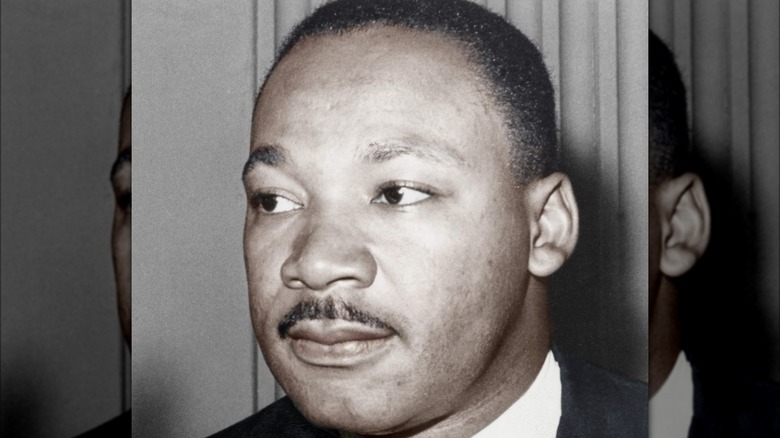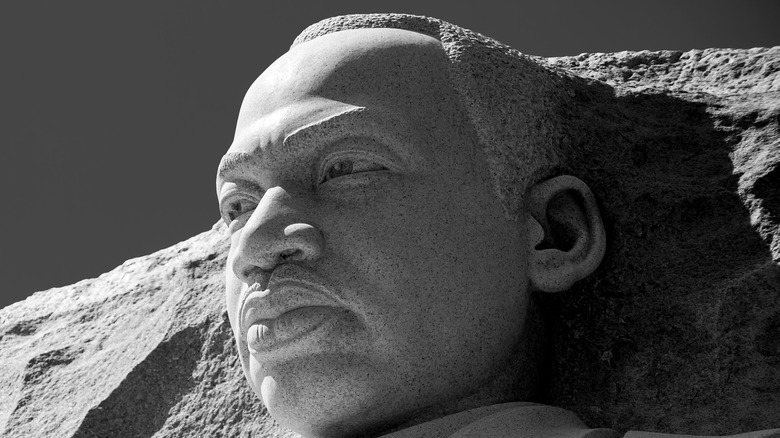The Real Reason Martin Luther King Jr.'s Name Was Changed
There are few people who are more well-known than the late Martin Luther King Jr. Per History, he was a man who stared racism in the face and did not back down. His methodology was not one of angry rhetoric, which was what Malcolm X, his contemporary, wielded to decry the state of race relations. No, he was a man who preferred peace, which meant he and his followers were met with angry words and sometimes violence. He had a dream of equality, and he spoke of it at length.
King was a thorn in the side of the government, and the FBI kept an extensive file on him. None of that deterred him — only a bullet could stop him. His assassination reverberated through the world, and his memory still endures in current times. His birthday is a federal holiday as the nation pauses to remember the man who sought to bring Black people onto equal footing with whites.
Would it surprise you to learn that the man we all know of as Martin Luther King Jr, or MLK, wasn't born with that name? The history behind the name change is a fascinating one.
Would Michael King Jr. be as memorable a name?
Martin Luther King Jr. was born in Atlanta, Georgia, in 1929. Per USA Today, he spent the first five years of his life known as Michael King Jr., though. That was his father's name. Then the senior King made a decision that would not only affect his son's life but also how a nation would come to view him: He changed his own name to Martin Luther King Sr. and his son to Martin Luther King Jr. The name was meant to invoke the name of the historical figure, Martin Luther.
The original Martin Luther also decided to stand up to something that he felt was oppressive — Catholicism, the dominant religion of his time, the 1500s. So he founded the Protestant religion, which valued the original person over a larger group entity. That sort of mindset is what the newly-named Martin Luther King Jr. came to embrace when he sought to change the laws that favored racial segregation. For example, Black people could only eat at certain restaurants and drink from certain water fountains. He organized sit-ins at certain places and also peaceful protests, via History. MLK was thrown in jail on more than one occasion, but he was steadfast in his beliefs, even though they wound up costing his life.
This is a name that has gone down in history. Would Martin Luther King Jr. have had that same fervent belief if he had remained Michael King Jr.? Would we be remembering a Michael King Jr. Day? We will never know.

